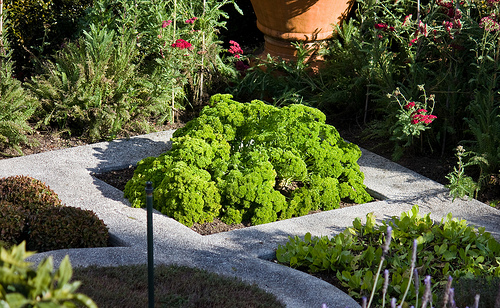Italian cuisine is long renowned for its very flavorful character; no dish is ever bland or boring. This can be attributed to the Italians’ use of their local herbs, which are now grown the world over.
The varieties of herbs are used today to add a kick of flavor in almost any dish, and you can even grow your own Italian herb garden at home. The herbs are very easy to grow, and having your own fresh stock at home will save you money with groceries.

Whether you are new to gardening or not, creating your own Italian herb garden is a fun activity and will add a delicious aroma in your home and garden.
To make it even easier for you, we’ve compiled a guide on the most popular Italian herbs, their uses, and tips for successful growing:
1. Basil is an essential herb in any Italian herb garden. It is sensitive to cold weather, so it is best to grow these in pots that you can bring indoors if you live in cold climates. It’s very easy to grow and great to use with a number of dishes.
When planting basil in your Italian herb garden, be sure to place it in a location that receives much sun, and it is best to begin propagating basil through seed. Basil only requires low watering, so be sure not to over-water.
2. Parsley is also a good choice for any Italian herb garden. However, the germination period takes quite long, as parsley contains a chemical that works against germination.
It helps to soak the seeds for two days but remember to change the water after one day, then refrigerate the seeds, then pour boiling water over the seeds.
It is also fairly difficult to transplant, so it is best to plant them directly onto large, well-drained pots. You should place the parsley in a spot that receives good sun in your Italian herb garden.
3. Any Italian herb garden should also have some good old fennel. Apart from being a good herb for most dishes, fennel is also commonly made into tea.
Fennel requires lots of sun and dry, well-drained soil[soil testing]. Also be sure to place it in a windy location as fennel plants are prone to pests – the Carrot Rust Fly.
4. Rosemary is a great addition for your Italian herb garden; it is a perennial which can grow to a large shrub. It’s a very sturdy plant but it is also sensitive to frost, so you may need to think twice about planting it in your Italian herb garden if you live in cold climates.
However, you can still enjoy rosemary if you plant it in little pots which you can protect in the shade when the snow comes. It blooms pretty blue flowers, adding some color to your Italian herb garden.
Rosemary is commonly used as a garnish for salads as well.
These are just some of the commonly used herbs in an Italian herb garden, but there are many more you can use.
Just remember to know what type of soil and climate is ideal for each to grow, and you will soon have more than enough harvest to use all year round.
Photo Credit: cynical view








